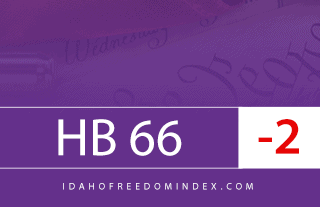


Bill description: Short of an outright ban, local governments could regulate and the state could tax vacation and short-term rentals.
Rating: -2
Analyst’s Note: The online lodging industry has taken off in the last decade. Digital platforms are connecting the owners of spare rooms, vacation homes, apartments and other residential properties with people who want to rent them . In the past few years, the state of Idaho has had a turbulent relationship with this industry. The Idaho Supreme Court in June 2015 ruled that homeowner’s associations could restrict short-term rentals. In 2016, the Legislature passed HB511, prohibiting homeowner associations from amending their contracts and covenants to ban short-term rentals, without explicit agreements. This was signed into law on March 24, 2016. In the interim, cities and counties have implemented regulations affecting the viability of short-term rentals. This new legislation provides state boundaries for these local regulations.
IdahoReporter.com covered Rexburg, Idaho proposing and implementing such regulations in 2016. Rexburg closed the doors to renters using the Airbnb platform.
Does it give government any new, additional, or expanded power to prohibit, restrict, or regulate activities in the free market? Conversely, does it eliminate or reduce government intervention in the market?
This bill bars local governments from outlawing vacation rentals and short-term rentals. (+1)
Unfortunately, the bill allows counties and cities to regulate for “the public’s health and safety” and for “noise, protection of welfare,” and several other reasons. Creating broad exceptions allows for cities or counties to regulate such businesses out of existence. In Rexburg, the excuse was noisy parties and increased street traffic at the types of short-term rentals cities like Rexburg seek to curtail. (-1)
Does it increase barriers to entry into the market? Examples include occupational licensure, the minimum wage, and restrictions on home businesses. Conversely, does it remove barriers to entry into the market?
The proposed section 55-1303(1), Idaho Code, calls for new licensing and registration for online marketplaces wishing to do business in Idaho. Additional licensing would create a barrier for new or smaller online entrepreneurs offering services for Idaho property owners. (-1)
Does it directly or indirectly create or increase any taxes, fees, or other assessments? Conversely, does it eliminate or reduce any taxes, fees, or other assessments?
This bill expressly requires online marketplaces to collect lodging taxes from property owners and remit them to the state of Idaho. (-1)


